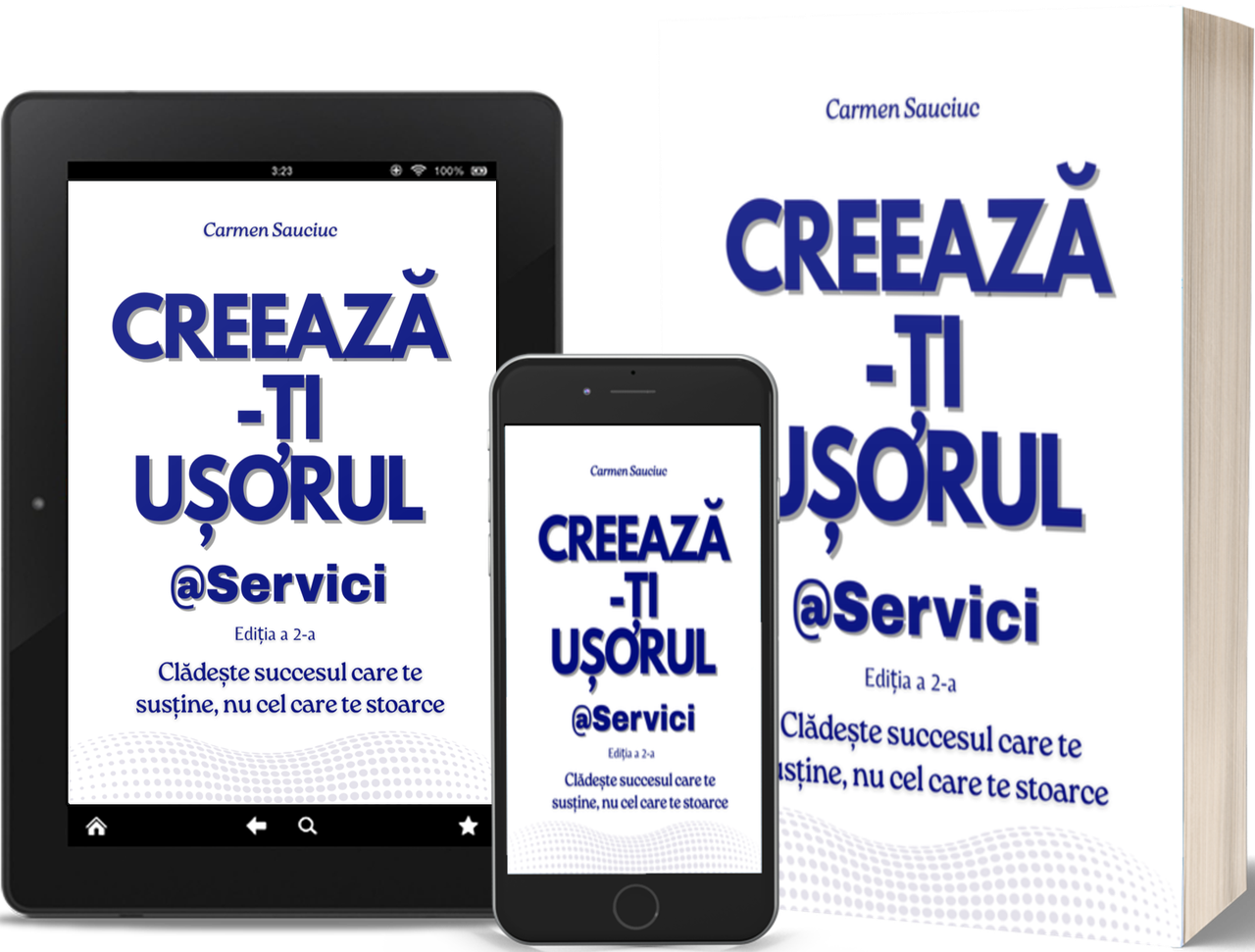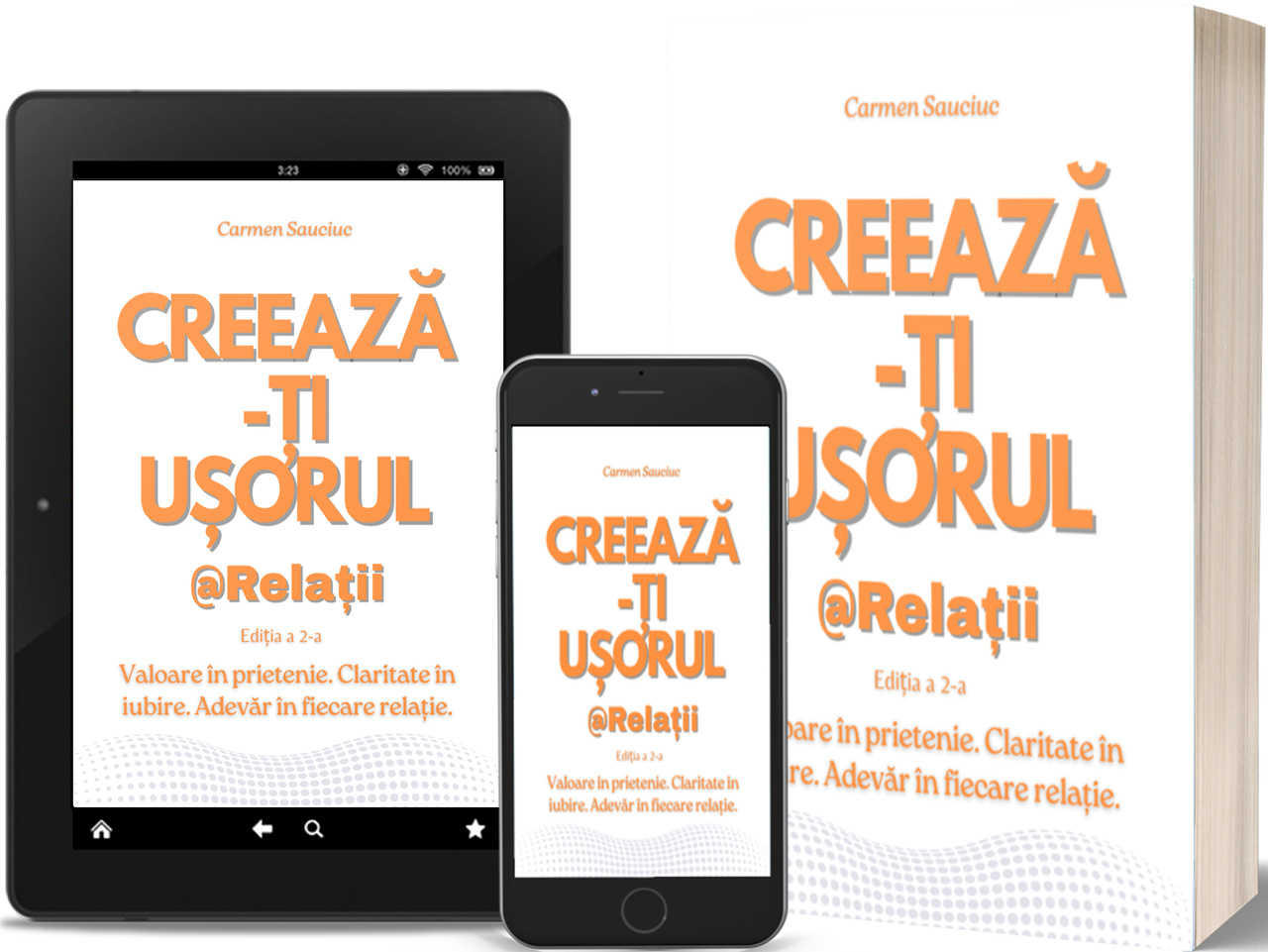Welcome to
Creating Ease® Bookstore
your one-stop-shop for Creating Ease @Self @Work @Relationships



THE CREATING EASE TRILOGY
@Self, @Work, @Relationships: The Full Architecture of Ease
It is a trilogy of transformations: how you meet your Self, how you move through your Work, and how you navigate your Relationships.
Each one is distinct.
Each one is essential.
And together, they form the full architecture of a life designed by Ease.
Creating Ease @Self begins the journey inward. It guides you to stabilize your identity, heal your patterns, and generate internal coherence. You do not fix your life from the outside. You build from within. This book is your foundation for building the internal structure of your Authentic Self.
Creating Ease @Work shifts the field around you. In a world of deadlines and demands, this book helps you preserve your center, lead from clarity, and build sustainable success. It is not about performance. It is about aligned contribution — from your truth, not your stress.
Creating Ease @Relationships opens the deepest practice. Here, Ease is no longer private. It becomes shared, expressed, tested, and refined through the people in your life.
This book teaches you how to stabilize Respect, Acceptance, Forgiveness, Love, and Success across the real-world complexity of being human, together. No single domain can carry the others.
Together, they create your living architecture — one that does not collapse when life gets loud. If you want Ease that lasts, build it in all three places. Build it in your Self. Build it in your Work. Build it in your Relationships.
Why You Need All Three: You are not just a Self.
You are a Self in motion — through your work, through your relationships, through your life.
Each book builds a different facet of the same architecture.
One gives you the foundation.
One teaches you external contribution.
One teaches you how to stay true in the middle of connections.
You do not just want peace at home and chaos at work.
You do not want self-understanding in silence but breakdown in relationships.
You want coherence across all contexts.
That is why these books were designed as a trilogy — not overlapping, not repeating, but deepening, expanding, and embodying the full spectrum of your humanity.
Your next chapter is not a new goal. It is a new identity.
And to live that identity in all areas of life, you need the whole map.
You need all three.
Creating Ease @SELF
Become Who You Were Meant To Be
available in Print and Online format
CREATING EASE @SELF
Become Who You Were Meant To Be
You’ve tried habits, routines, and mindset shifts—but if the internal friction keeps returning, it’s time for something deeper. Creating Ease @Self gives you the architecture to become someone new from the inside out. Through the Five Laws you’ll learn to replace exhaustion with identity-level alignment.
No more forcing change. This book shows you how to generate real, sustainable transformation by shifting your internal State of Being.
What if your emotional patterns, choices, and reactions weren’t just habits—but results of an outdated identity?
This book gives you the tools to rewire that identity. You’ll practice Thought–Feeling Patterns that rebuild emotional clarity, cognitive precision, and the capacity to stay grounded even in chaos.
If you’re done surviving and ready to stabilize who you are, not just what you do—this is where that evolution begins.
You will not just change your habits.
You will change who you are becoming.
Creating Ease @Work
Building the Kind of Success You Don’t Burn Out To Keep
available in Print and Online format
CREATING EASE @WORK
Building the Kind of Success You Don’t Burn Out To Keep
Your work life is demanding. You’re pulled in every direction, pressured to perform while staying calm, present, and clear. Most burnout prevention strategies fall short—because they don’t address who you’re being. Creating Ease @Work isn’t a performance manual.
It’s a full redesign of how you operate under pressure. Built around five identity-level Laws—Grounded Clarity, Visionary Design, Emotional Precision, Strategic Liberation, Fulfilled Action—this book teaches you how to generate clarity that doesn’t break under pressure and success that doesn’t cost your nervous system.
Whether you’re leading, building, or collaborating, these practices give you the resilience, presence, and influence you need to thrive in high-stakes environments. You don’t need more time.
You need a better architecture. This is the blueprint for sustainable success you don’t burn out to keep.
You do not need more hustle.
You need internal design that lasts.
Creating Ease @Relationships
Building Connection with Clarity and Care
available in Print and Online format
CREATING EASE @RELATIONSHIPS
Building Connection with Clarity and Care
Relationships are where your deepest wounds and highest growth live. If you feel unheard, unsupported, or stuck in cycles of reactivity, Creating Ease @Relationships is the reset you’ve needed.
Built on the Five Laws—Safe Seeing, Loving Intention, Open Presence, Inner Wholeness, and Shared Fulfillment—this book gives you the tools to generate a connection that is clear, honest, and healing.
You’ll learn how to listen without defense, speak with emotional integrity, and show up even when the other person doesn’t.
Instead of waiting to be seen, you’ll become the person who brings depth and truth into the space. Whether you’re navigating parenting, romantic partnership, or friendship, this book guides you to stop reacting—and start building relationships that feel like home.
If you’re ready to break cycles and return to authentic connection, this is where you begin.
This is the work of emotional evolution—crafted, not chased.
FEELFULNESS
Meta-conscious Design in Therapeutic Methodologies
Generating States of Being, Feel a Feeling by Choice
available in Print and Online format
Feelfulness® Meta-Conscious Design, Generating States of Being is the first framework to integrate Feeling by Choice, Neuro-Language and Advanced Metacognitive Skills into a Meta-Conscious Design for Generating States of Being.
Rooted in neuroscience and metapsychology, Feelfulness enables the conscious design of Identity-Level experience as Internal Architecture. It reframes therapeutic methodologies as Transferring Consciousness: the practitioner becomes the medicine, embodying and transmitting the State the client cannot yet access.
Word Triangles are not affirmations but symbolic neuro-language structures that rewire subconscious patterns through Thought-Feeling Practices, rehearsed, embodied, and stabilized into transferred presence.
This book offers a complete framework for therapeutic mastery, identity recalibration, and conscious influence. Transformation is not only felt, it is structured, stabilized, and lived. Feelfulness is not just a system, it is the new architecture of being.



Creează-ți Ușorul Trilogia
@Sinele, @Servici, @Relații
De ce ai nevoie de toate trei?
Niciun domeniu nu poate susține celelalte de unul singur. Împreună, ele creează arhitectura ta vie – una care nu se prăbușește când viața devine zgomotoasă. Dacă vrei un Ușor care durează, construiește-l în toate cele trei locuri:
• În Sinele tău.
• În Serviciul tău.
• În Relațiile tale.
Nu ești doar un Sine. Ești un Sine în mișcare – prin muncă, prin relații, prin viață.
Fiecare carte construiește o fațetă diferită din aceeași arhitectură: una îți oferă fundația, una te învață contribuția exterioară, una te ancorează în autenticitate, chiar și în conexiune.
Nu vrei liniște acasă și haos la muncă.
Nu vrei autoînțelegere în tăcere și dezintegrare în relații.
Vrei coerență în toate contextele.
De aceea aceste cărți au fost create ca o trilogie – nu se suprapun, nu se repetă, ci adâncesc, extind și întruchipează întreaga ta umanitate.

Creează-ți Ușorul @Sinele
Reconectează-te la claritatea, valoarea și adevărul tău
Tiparită și / sau Online
Creează-ți Ușorul @Sinele
Reconectează-te la claritatea, valoarea și adevărul tău
Ce-ar fi dacă emoțiile și reacțiile tale nu sunt doar obiceiuri, ci expresii ale unui fel de a fi care nu ți se mai potrivește?
Ai încercat schimbări de mindset și formule noi, însă oboseala interioară tot revine — pentru că, în profunzime, ceea ce ai nevoie este reconstrucția Sinelui.
Creează-ți Ușorul @Sinele îți oferă arhitectura necesară pentru a deveni, cu adevărat, versiunea întreagă a ta — din interior către exterior. Prin cele cinci legi — Legea Clarității Interioare, Legea Devenirii, Legea Calmei Focalizări, Legea Libertății Interioare, Legea Reușitei — înveți cum să înlocuiești oboseala și efortul cu o aliniere profundă la felul tău autentic de a fi.
Nu mai e nevoie să forțezi schimbarea. Această carte te ajută să o creezi natural, prin stări de a fi care susțin dezvoltarea reală și durabilă.
Această carte îți oferă instrumentele prin care poți rescrie tot ce te formează în adâncul tău. Practica Gând–Simțului reconstruiește claritatea emoțională, precizia mentală și capacitatea de a rămâne echilibrat(ă) chiar și în momentele de haos.

Creează-ți Ușorul @Servici
Clădește succesul care te susține, nu care te stoarce
Tiparită și / sau Online
Creează ți Ușorul @Servici
Clădește succesul care te susține, nu care te stoarce
Succesul sustenabil nu se obține prin suprasolicitare, ci se construiește prin intenție, echilibru și un Sine solid.
Oboseala cronică este înlocuită de energie integrată: gândirea devine mai limpede, prezența mai conștientă, iar deciziile mai aliniate cu cine alegi să devii.
Aici nu construiești doar carieră — îți construiești un mod de a fi la serviciu care te reflectă și te susține în mod real.
Această carte nu este un manual de time management, ci un instrument pentru o viață profesională în care te simți autentic(ă), nu robotizat(ă). Prin cele 5 Legi ale Ușorului @Servici — Legea Clarității Ancorate, Legea Designului Vizionar, Legea Preciziei Emoționale, Legea Eliberării Strategice, Legea Întrupării Succesului — dobândești echilibru emoțional, concentrare clară și o prezență profesională care nu obosește.

Creează-ți Ușorul @Relații
Valoare în prietenie. Claritate în iubire. Adevăr în fiecare relație.
Tiparită și / sau Online
Creează-ți Ușorul @ Relații Valoare în prietenie.
Claritate în iubire. Adevăr în fiecare relație.
Aceasta nu este o carte despre relații ideale, ci despre relații reale — construite prin intenție conștientă, claritate interioară și echilibru emoțional.
Relațiile cu adevărat nutritive se construiesc prin prezență și adevăr, nu prin control sau sacrificiu. Această carte nu îți cere să-i repari pe ceilalți, ci îți oferă spațiul interior să devii tu — mai clar(ă), mai cald(ă), mai întreg(ă).
Creează-ți Ușorul @Relații te învață cum să alegi conștient cine devii în relație cu ceilalți — fără apărare și fără distorsiune. Prin cele 5 Legi ale Ușorului @ Relații Legea Activării, Legea Intenției Iubitoare, Legea Prezenței Deschise, Legea Interiorului Întreg și Legea Reușitei Împărtășite, aplică arhitectura Feelfulness acolo unde contează cel mai mult: în modul în care iubești, oferi, simți și te conectezi.
Vei învăța să vezi fără distorsiuni, să asculți fără apărare și să alegi ca trecutul să nu îți dicteze prezentul.
Fie că vrei să aprofundezi, să vindeci sau să creezi relații în care te simți cu adevărat văzut(ă) și susținut(ă), această carte îți oferă uneltele, și structura necesare în relațiile nutritive.

About the Author
Carmen Sauciuc is the creator of Feelfulness, Feel a Feeling by Choice, a pioneering methodology uniting neuroscience, metacognitive architecture, neuro-language design, and the conscious generation of emotional-feeling states.
Her work offers a radical shift: not just regulating emotions but consciously generating States of Being and constructing identity-level Internal Architecture.
A board-certified hypnotherapist, neuro-coach, and trainer, Carmen is certified by the International Certification Board of Clinical Hypnotherapists, International Association of Counselors and Therapists, and the American Board of Hypnotherapy and NLP.
Practitioners trained in Feelfulness master Metacognition, Metaemotion, Neuro-Language, Generating Identity-Level States of Being and Transfer Therapeutic Consciousness.
Since naming Feelfulness in 2011, she has trained practitioners worldwide. Her work synthesizes the alchemical insights of Carl Jung, Milton Erickson’s precision hypnotherapy, William James’ functional psychology, Antonio Damasio's neuroscientific insights and David R. Hawkins' evolution of consciousness. Her mission is clear: to train practitioners beyond delivering symptom management techniques to consciously Generate therapeutic States of Being and become the medicine themselves.
Healing is not something we do: it is something we become.


